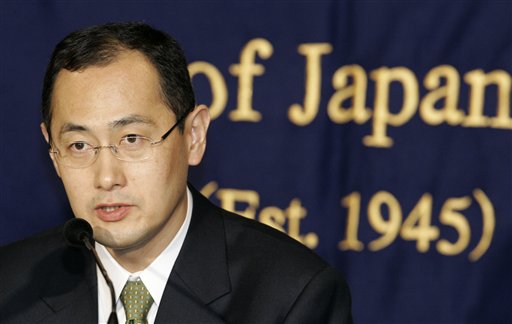(AP) Nobel prize to Briton, Japanese for stem cell work
By KARL RITTER and LOUISE NORDSTROM
Associated Press
STOCKHOLM
British researcher John Gurdon and Shinya Yamanaka of Japan won this year’s Nobel Prize in physiology or medicine on Monday for discovering that mature, specialized cells of the body can be reprogrammed into stem cells _ a discovery that scientists hope to turn into new treatments.
Scientists want to harness that reprogramming to create replacement tissues for treating diseases like Parkinson’s, diabetes and for studying the roots of diseases in the laboratory.
The prize committee at Stockholm’s Karolinska Institute said the discovery has “revolutionized our understanding of how cells and organisms develop.”
Gurdon showed in 1962 _ the year Yamanaka was born _ that the DNA from specialized cells of frogs, like skin or intestinal cells, could be used to generate new tadpoles. That showed the DNA still had its ability to drive the formation of all cells of the body.
In 1997, the cloning of Dolly the sheep by other scientists showed that the same process Gurdon discovered in frogs would work in mammals.
More than 40 years after Gurdon’s discovery, in 2006, Yamanaka showed that a surprisingly simple recipe could turn mature cells back into primitive cells, which in turn could be prodded into different kinds of mature cells.
Basically, the primitive cells were the equivalent of embryonic stem cells, which had been embroiled in controversy because to get human embryonic cells, human embryos had to be destroyed. Yamanaka’s method provided a way to get such primitive cells without destroying embryos.
Just last week, Japanese scientists reported using Yamanaka’s approach to turn skin cells from mice into eggs that produced baby mice.
Gurdon, 79, has served as a professor of cell biology at Cambridge University’s Magdalene College and is currently at the Gurdon Institute in Cambridge, which he founded. Yamanaka, 50, worked at the Gladstone Institute in San Francisco and Nara Institute of Science and Technology in Japan. He is currently at Kyoto University and also affiliated with the Gladstone Institute. Yamanaka is the first Japanese scientist to win the Nobel medicine award since 1987.
Prize committee member Juleen Zierath said Gurdon and Yamanaka’s discoveries, which also earned them a Lasker award for basic research in 2009, could hold “immense potential,” including in developing treatments for Parkinson’s disease and in making cells that produce insulin. However, she added that therapeutic implications are still far away.
The idea of reprograming cells has also been put to work in basic research on disease, through an approach sometimes called “disease in a dish.”
The reprogramming allows scientists to create particular kinds of tissue they want to study, like lung tissue for studying cystic fibrosis, or brain tissue for Huntington’s disease. By reprogramming cells from patients with a genetic disease, they can create new tissue with the same genetic flaws, and study it in the lab. That can give new insights into the roots of the problem.
In addition, that approach allows them to screen drugs in the lab for possible new medicines.
Goran Hansson, the secretary of the prize committee, said he had reached both winners before the announcement.
The medicine award was the first Nobel Prize to be announced this year. The physics award will be announced Tuesday, followed by chemistry on Wednesday, literature on Thursday and the Nobel Peace Prize on Friday.
The economics prize, which was not among the original awards, but was established by the Swedish central bank in 1968, will be announced on Oct. 15. All prizes will be handed out on Dec. 10, the anniversary of prize founder Alfred Nobel’s death in 1896.
Last year’s medicine award to Canadian-born Ralph Steinman, American Bruce Beutler and French scientist Jules Hoffmann briefly created some confusion when it was announced that Steinman had died a few days earlier. Posthumous prizes are normally not allowed, but the award was left unchanged since the judges were not aware of Steinman’s death when they selected him as a winner.
_______
Associated Press writer Malcolm Ritter contributed to this report from New York.

COMMENTS
Please let us know if you're having issues with commenting.